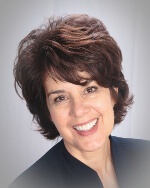|
www.HealthyHearing.com |
102-year-old WWII veteran receives cochlear implant
Contributed by Debbie Clason, staff writer, Healthy Hearing He’s been a scientist for the federal government, a conservationist, a B17 pilot in WWII and now, at 102 years of age, California resident Irvin Poff is a cochlear implant recipient. 
102 years. Poff said he was getting by with his second set of hearing aids until the pandemic hit. When everyone started wearing masks, his ability to understand speech diminished significantly. He had already given up going to the movie theater to watch his favorite Westerns so when he saw an ad for cochlear implants in a magazine, he called the number and asked for more information. Poff is part of a growing trend: More seniors are getting cochlear implants when hearing aids aren't quite enough to address their hearing loss. What is a cochlear implant?A cochlear implant is a medical device that's surgically implanted behind the ear, on the temporal bone. The internal receiver collects sound signals from the external transmitter, converts them to electrical pulses, then sends them to electrodes that have been inserted in the inner ear. These pulses travel along the auditory nerve for the brain to interpret as sound. By bypassing the damage in the inner ear, a cochlear implant can give those who are deaf or have profound hearing loss the sense of sound so that they can understand speech and noise in their environment. Speech comprehension was lowA subsequent hearing evaluation with an audiologist revealed that Poff’s speech comprehension was less than 30 percent, so he was referred to Dr. Akira Ishiyama, MD, a neurotologist and professor in the department of Head & Neck surgery at the David Geffen School of Medicine at UCLA. “[The doctor] was trying to determine if I had the 'stick-to-itiveness' to stay with it long enough for it to work out,” Poff explained. “I know it’s unusual for someone my age to have a cochlear implant just as it’s unusual for someone to live to be my age.”
In addition to a hearing evaluation, cochlear implant candidates undergo additional medical and psychological evaluations, imaging, and counseling to make sure they understand the process, the follow-up commitment, and what they can expect from the device. From start to finish, the evaluation, surgery, and recovery period can take several months. Poff's surgery was at the Ronald Reagan UCLA Medical Center. A whole new world of hearing
Three weeks after meeting with Dr. Ishiyama, Poff received a cochlear implant in his left ear under local anesthesia. (He still wears a hearing aid in his right ear.) Four weeks later, after the incision had completely healed, he went back to UCLA to have the processor connected. Soon after, he started hearing sounds he hadn't in a long time. “The first thing I noticed was my simple little electric clock,” Poff said. “I could hear the tick tock real plain. I hadn’t heard it before. Now I can hear it clear across the room.” Once the processor is activated, it often takes awhile for the brain to make sense of the sound it is receiving. Recipients commit to a series of outpatient appointments to have the processor’s programming adjusted as the nerves and brain become accustomed to hearing again. This is known as auditory rehabilitation. Since his processor was activated, Poff says he can understand twice as many of the words he could before the surgery. He’s listening to CDs in the car again because the implant has improved his ability to hear high-frequency sounds. But the best thing is the ability to be part of the conversation again. 'It's all good'“I walk around the block every day—one third of a mile—to keep my heart moving," he said. "I know all of those people on the block and have three or four I have contact with most every day. Those contacts are better now that I can understand.” Now that he’s hearing better, Poff says he’s “pretty healthy except for a little asthma and problems associated with my age.” His eyes are good, he says, and his driver’s license is valid until he turns 105. “If I live until then.” He just might. “It’s all good,” Poff said. “I look forward to the next day and don’t worry about what happened the day before because it doesn’t matter.” Hearing loss in veteransLike Poff, many veterans have hearing loss or tinnitus. Many can receive affordable care through VA hearing care services. Debbie Clason, staff writer, Healthy Hearing
|
Featured clinics near me
Earzlink Hearing Care - Reynoldsburg
7668 Slate Ridge Blvd
Reynoldsburg, OH 43068

Find a clinic
We have more hearing clinic reviews than any other site!



 Debbie Clason holds a master's degree from Indiana University. Her impressive client list includes financial institutions, real estate developers, physicians, pharmacists and nonprofit organizations.
Debbie Clason holds a master's degree from Indiana University. Her impressive client list includes financial institutions, real estate developers, physicians, pharmacists and nonprofit organizations.